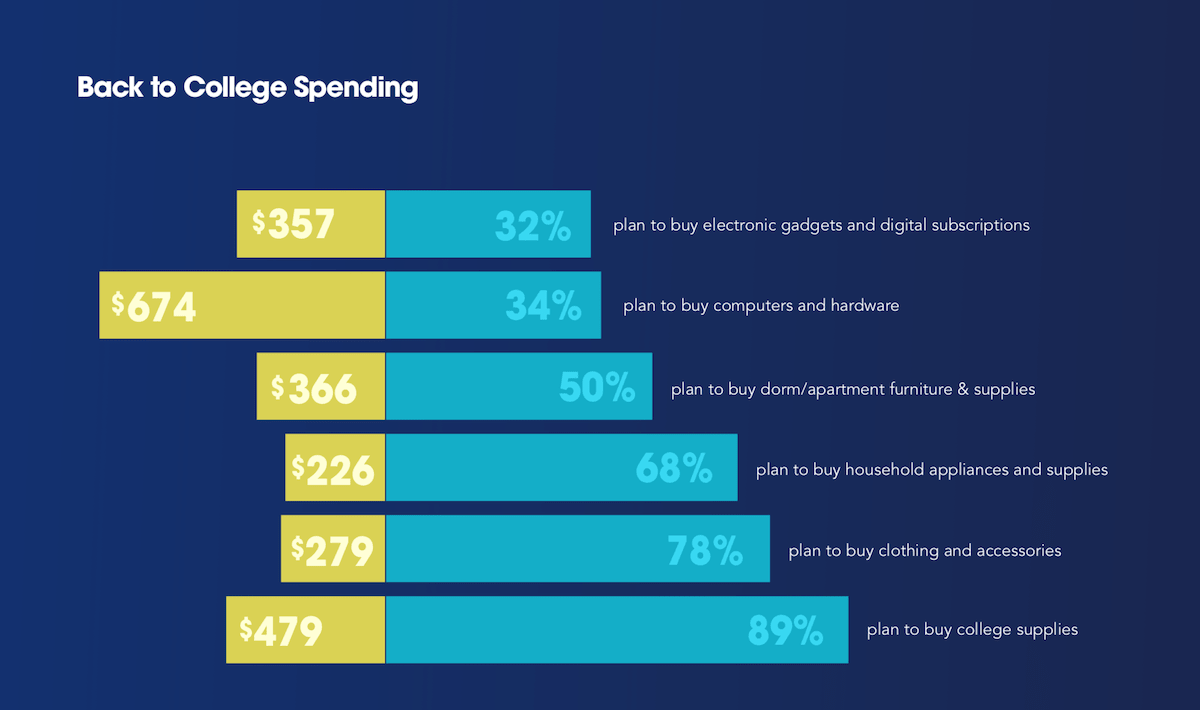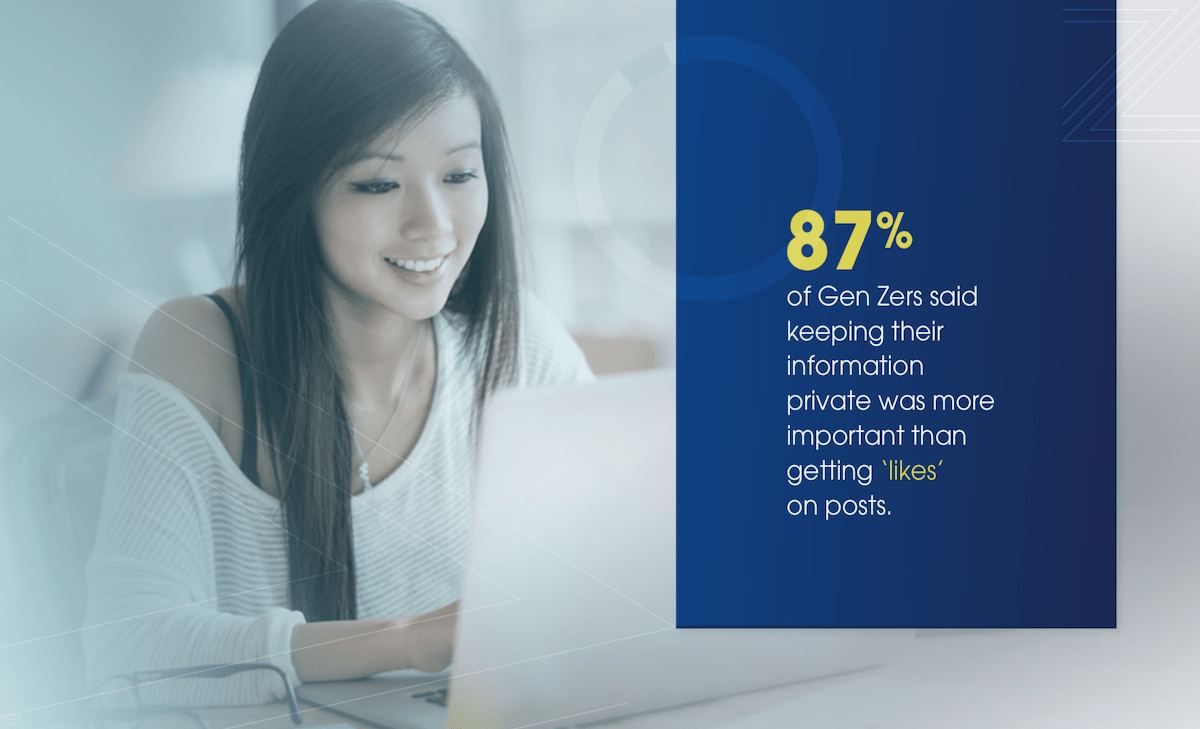Marketing to Generation Z
What is Generation Z?
Generation Z is the segment of people born in 1995 or later. They are the largest subgroup in the United States at 26% of the total population, and by 2020 they will account for over one-third of the U.S. population.
On top of that, Gen Z has tremendous buying power—an estimated $143 billion in the United States alone. Seventy-five percent of Generation Z spends more than half of the money available to them each month, and by 2020, generation Z members will make up 40% of all consumers. Gen Z is also extremely persuasive within their families, and influence 70% of family food purchases and 80-90% of other purchased items.
The Generation Z Market
Generation Z is the most diverse subgroup in the U.S, with 52% identifying as non-Hispanic white, compared to 61% of millennials in 2002 (when they were in the same age range).
Generation Z’s enormous spending power tends to go towards eating out, electronics, beauty products, and clothing/accessories. Gen Zers in college spend over $1,330 per household on back to school items, which added up to $25 billion in 2018.

Gen Z have always had the internet as part of their lives, and as a result of this they are extremely tech savvy. Ninety-four percent of Gen Zers own laptops, and three out of four said spending time online was the primary activity they engage in during their free time, with smartphones as their device of choice. Seventy-five percent of Gen Zers say that they receive most of their information on social media, and that they follow at least one brand on social media.
$143 Billion
Spending power of Generation Z in 2018
Generation Z also tend to be brand loyal as long as the brand’s mission, product quality, and service continue to meet their high expectations. Two in three Gen Zers (66%) said once they find a brand they like, they will continue to buy that brand for a long time. Sixty-five percent said that rewards programs influence where they shop, and 60% said they are happy to be associated with their favorite brand. In order to earn this loyalty, brands must show that they have strong tech and market to Generation Z with clear, honest messaging.
Generation Z and Privacy
Not surprisingly, Gen Zers value their privacy more than previous generations:
- 87% report that keeping their personal information private was more important to them than popularity measures.
- 75% only allow location sharing for apps which require it to function
- 58% toggle their location sharing according to how and when they want to use it.
It’s clear that Generation Z take their privacy seriously and will be loyal to those brands that do the same. According to the Uniquely Gen Z study by IBM and NRF, less than one-third of teens say they are comfortable sharing personal details other than contact information and purchase history, but 61% would feel better sharing personal information with brands if they could trust it was being securely stored and protected.

Generation Z vs. Millennials
Gen Z and Millenials have many similarities—savviness with technology, concern with political issues, and strong connections with social media. But there are also significant differences between the two segments that are important for marketers to keep in mind.
Attention Span
Gen Z can be less focused and have shorter attention spans than millenials, since they grew up with the internet and are used to obtaining and processing information faster than previous generations.
Digital Connection
This shorter attention span can also make them better multi-taskers, as they are used to operating multiple technologies at once. Gen Zers are 25% more likely than Millennials to say they are addicted to their digital device, with a full 40% identifying as “addicted”. Also, Gen Zers use more screens on average than Millennials, with Gen Z averaging five screens and Millenials averaging three.
Prices and Discounts
Marketing to Millennials and Gen Z differs slightly. Millennials care more about prices than Gen Z, with 67% percent of Millennials saying that they would go to the website to get a coupon, whereas only 46% of Gen Z saying they would do the same.
Advertising
Millennials also tend to click on more ads. Seventy-one percent of Millennials in a recent poll said they followed an advertisement online before making a purchase, but only 59% of Gen Zers said the same.
All in all, capturing and holding the attention of Generation Z can require more work up front. Marketers should aim to convey their brands to Gen Z in under eight seconds to be sure to reach them before they move on to new content.
Marketing to Generation Z Strategies
Today, many companies are seeing success when marketing to Generation Z by engaging with their desire to support brands that they see as authentic and socially engaging. For example, retailers like UNIQLO have appealed to Gen Z through their socially altruistic business model.
76% of Generation Z are concerned about humanity’s impact on the planet
Authenticity and social impact in brands is important to Gen Z. According to a recent report, 60% of Gen Zers want their jobs to impact the world, and 76% are concerned about humanity’s impact on the planet. Brands are working to convey to Generation Z that they are not just talking about social responsibility and change but are actually doing it.
Additionally, Generation Z likes to be engaged by “real people”—celebrity endorsements are not as convincing. Gen Zers are more likely to be swayed by influencers on social media, particularly YouTube, which 85% of Gen Zers say is their favorite site (EY:Rise of GenZ).
Seed Marketing—an Effective Strategy for Marketing to Generation Z
Seeding the market with a gated, exclusive offer specifically designed for student members of Generation Z is an emerging and powerful strategy for creating brand loyalty in the growing Gen Z market. There a few reasons student seed programs are effective strategies for marketing to Gen Z:
- When given access to a gated offer, 91% of surveyed students said they would be more likely to shop with a brand.
- Creating a good brand relationship with students ensures they stay active customers for a long time. A study from Deloitte found that college students have a nearly 10-year customer lifecycle preference.
- Generation Z is highly social. Eighty-three percent of Gen Z shoppers said they would likely share a student discount with their friends or family.
- Students who receive a gated discount from streaming media companies convert to full price after graduating at rates above 90%.
Verifying Students with SheerID’s Digital Verification Platform
Gated offers feel personal and are cost-friendly, two things that Gen Z prefers. But because Gen Z has a shorter attention span and greater concerns about privacy, brands need to be careful about how they verify Gen Z for exclusive offers.
According to our 2018 Shopper Survey conducted by Kelton Research, Gen Z is “particularly concerned about the potential for brands to misuse information they collect when an offer is redeemed.”
SheerID’s Digital Verification Platform protects your offer from discount abuse, and makes it easy for the student segment to trust and engage with your brand because it requires only the most basic personal information. It also provides third-party verification, which our survey revealed is what nearly three out of five shoppers said they prefer.